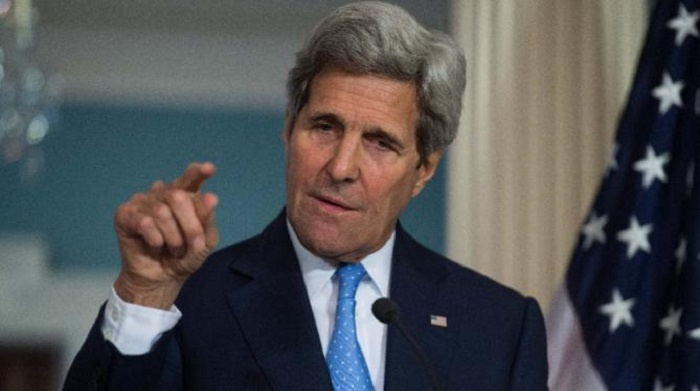Kerry’s Mystery Russia Statement and the American "Semi-Fact Sheet"

"The facts on which the parameters are based are facts. And yesterday, the Russians issued the statement saying that the fact sheet or the facts as expressed by the United States are reliable and accurate information." U.S. Secretary of State John Kerry made this statement on television on Sunday, April 12th and was thus able to convey the impression that Iran's criticisms of the U.S. "fact sheet" are invalid.
Yet, the problem with Kerry's claim of Russian endorsement of the "fact sheet" disputed by Iran is that there is no evidence of any such statement by any Russian official, including the foreign minister Sergei Lavrov, or other officials directly involved in the nuclear negotiations.
On the contrary, Mr. Sergei Rybakov the deputy foreign minister who leads the Russian delegation at the talks has explicitly challenged the American interpretation of the Lausanne statement, which insists on gradual "sanctions relief" instead of their immediate removal. Rybakov has stated:
"We reiterate our position that the lifting of the sanctions set forth in the UN Security Council resolution, should take place simultaneously with the signing of the agreement. But this does not mean that the entire volume of sanctions will be immediately canceled. In what order and what sanctions may be suspended or canceled completely, this remains a subject of negotiations. And the inconsistency of these questions largely determines and explains why after the Lausanne Round divergent signals we heard from Washington and Tehran."
Hence, this raises the question of why Secretary Kerry made that wild, unsupportable claim about Russia, when the opposite is true?
Perhaps Kerry expects the international community to behave like the docile American population and its mainstream media, by simply adopting his claims as facts? But, given the fact that the world has a belly full of American deception and duplicity, Kerry's latest statement on Iran requires serious scrutiny. A foreign journalist conducting that interview with Kerry might have bothered to ask about the statement, but not the American journalist intent on giving legitimacy -- to a rather embarrassing situation where the U.S. is caught with its distortion of facts, as indicated by Iran's Supreme Leader and Iran's resourceful foreign minister, Javad Zarif.
In fact, even the Europeans have pretty much landed on Iran's side by explicitly stating that only the Lausanne statement matters, in other words showing their distrust of the American "fact sheet" which is better called "semi-fact sheet."
One reason why Rybakov's statement on sanctions mentioned above is important is that he is also on record after Lausanne meetings, stating the following:
"We are pleased with how this ended a marathon. It ended by finding the key parameters of the future agreement,"
It is therefore logical to deduce from the Russian statements that the parameter on sanctions reflects Iran's position, not the current U.S. position. This is an important conclusion that bears on the next round of talks that focus on drafting the final agreement. The U.S. will obviously try to shape the final agreement according to its own arbitrary interpretation, which is in open divergence from Iran's view on important key issues not limited to sanctions, such as the length of agreement on limitations on Iran's nuclear activities, or the scope of inspections.
Obviously, these important differences need to be resolved before a deal can be reached, meanwhile a little bit of American honesty, and self-criticism, can go a long way.

